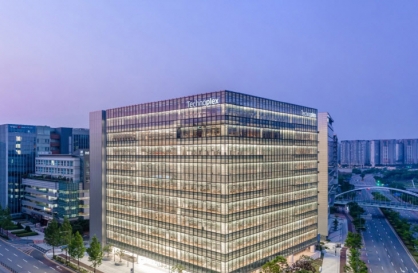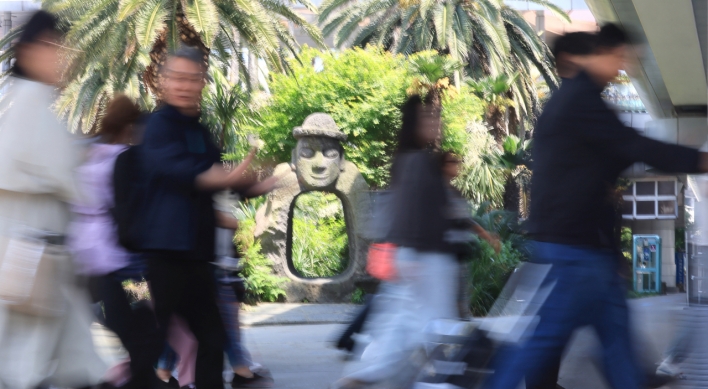National Police Agency chief Cho Hyun-oh has remarked that “time has come for the police to start controlling the prosecution, ending prosecutors’ control of police.”
This could be yet another emotional outburst from the police chief, who is hardly a man of great self-restraint, in the ongoing dispute between the two law-enforcement organizations. But he had very concrete reasons for pronouncing a reversal of the traditional police-prosecution relationship.
The National Human Rights Commission receives twice as many complaints about human rights violations by prosecutors than about police officers’ violations ― when they are divided by the number of personnel in the two organizations. There are 7,100 prosecutors and investigation officers in the prosecution while the National Police Agency has 150,000 personnel, including 22,000 detectives. He did not provide the actual numbers of complaints with the NHRC.
If this comparison is still not enough to support his claim of police “supremacy” over prosecutors, Cho quoted another item of official statistics during a roundtable with members of the Daegu Metropolitan Police Agency on Monday. He said that police ranked 11th among 39 national organizations in terms of “bureaucratic cleanness” while the prosecution as a whole was placed 29th.
Since the power contest first caused public concern in 2005, Cho Hyun-oh has been considered the most aggressive police chief to assert the rights of his force to conduct criminal investigations independently. Raising objections to the presidential decree on the division of duties between the two organizations, which was prepared by the Prime Minister’s Office and was put into force on Jan. 1, Cho ordered his staff to draft a revision to the Criminal Procedures Law in order to quash the effect of the new decree.
To neutral observers, the NPA is seen to have gained considerable concessions from the prosecution, particularly with the new procedure of starting investigations without prior authorization by the prosecution. But the general public is still not entirely willing to go to the police rather than the prosecution when they became the victims of crime, despite Cho’s claim that the police force has stronger human rights awareness and relative cleanness.
For the time being, it is advisable for the two organizations to restrain themselves from trying to settle the problem at once and to faithfully abide by the new rules in the execution of their duties.
This could be yet another emotional outburst from the police chief, who is hardly a man of great self-restraint, in the ongoing dispute between the two law-enforcement organizations. But he had very concrete reasons for pronouncing a reversal of the traditional police-prosecution relationship.
The National Human Rights Commission receives twice as many complaints about human rights violations by prosecutors than about police officers’ violations ― when they are divided by the number of personnel in the two organizations. There are 7,100 prosecutors and investigation officers in the prosecution while the National Police Agency has 150,000 personnel, including 22,000 detectives. He did not provide the actual numbers of complaints with the NHRC.
If this comparison is still not enough to support his claim of police “supremacy” over prosecutors, Cho quoted another item of official statistics during a roundtable with members of the Daegu Metropolitan Police Agency on Monday. He said that police ranked 11th among 39 national organizations in terms of “bureaucratic cleanness” while the prosecution as a whole was placed 29th.
Since the power contest first caused public concern in 2005, Cho Hyun-oh has been considered the most aggressive police chief to assert the rights of his force to conduct criminal investigations independently. Raising objections to the presidential decree on the division of duties between the two organizations, which was prepared by the Prime Minister’s Office and was put into force on Jan. 1, Cho ordered his staff to draft a revision to the Criminal Procedures Law in order to quash the effect of the new decree.
To neutral observers, the NPA is seen to have gained considerable concessions from the prosecution, particularly with the new procedure of starting investigations without prior authorization by the prosecution. But the general public is still not entirely willing to go to the police rather than the prosecution when they became the victims of crime, despite Cho’s claim that the police force has stronger human rights awareness and relative cleanness.
For the time being, it is advisable for the two organizations to restrain themselves from trying to settle the problem at once and to faithfully abide by the new rules in the execution of their duties.
-
Articles by Korea Herald







![[Weekender] Korean psyche untangled: Musok](http://res.heraldm.com/phpwas/restmb_idxmake.php?idx=644&simg=/content/image/2024/05/02/20240502050841_0.jpg&u=)



![[Herald Interview] ‘Time to Be Strong’ follows retired K-pop idols’ self-discovery](http://res.heraldm.com/phpwas/restmb_idxmake.php?idx=644&simg=/content/image/2024/05/03/20240503050550_0.jpg&u=)






![[Eye Interview] 'If you live to 100, you might as well be happy,' says 88-year-old bestselling essayist](http://res.heraldm.com/phpwas/restmb_idxmake.php?idx=652&simg=/content/image/2024/05/03/20240503050674_0.jpg&u=)
